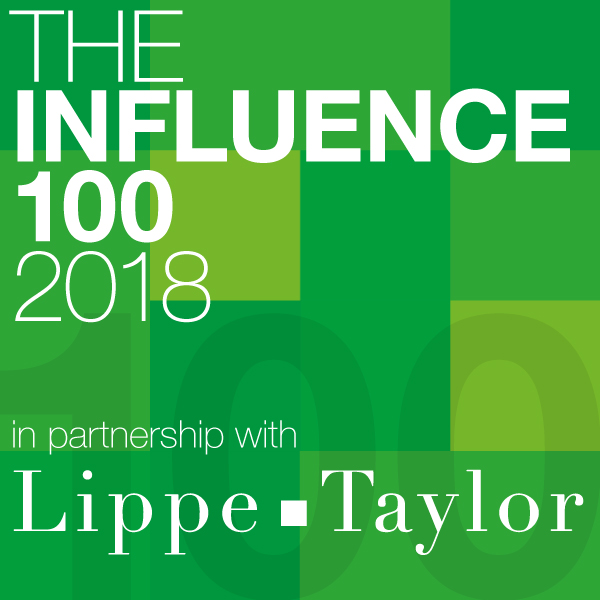
The Crossover Stars
Introduction & Methodology |
Profiles |
Demographics & Background |
Teams, Budgets & Agencies |
Future Challenges, Diversity & Inspiration |
The Crossover Stars |
The Rising Stars |
Sponsored Content: Digital Reductionism
The Crossover Stars are the Holmes Report’s annual 'Hall of Fame' for those communicators whose career trajectory has extended beyond communications, marketing and sales into a broader core business function within their organizations. Our seven Crossover Stars for 2018 have titles that include managing director, chief operations officer, chief executive officer, president and vice-chair.

Chris Maroleng
Chief Operations Officer
South African Broadcasting Corporation (SABC)
Chris Maroleng was made chief operations officer of the South African Broadcasting Corporation (SABC) in January this year, joining from leading African telecoms company MTN Group, where he was executive for group corporate affairs. He has an interesting job on his hands in his first COO role: he took over at the embattled state broadcaster from Hlaudi Motsoeneng, who was fired in June 2017 after it was found that he brought the company into disrepute. An internal disciplinary committee found that Motsoeneng had lied about his qualifications, had purged the SABC of staff, and promoted people and raised salaries without following the correct procedures.
Maroleng was a researcher at the Institute for Security Studies from 2002 to 2008. He then led the team which started eNews Africa in 2009 and built up the Africa division. He was a presenter and editor at eNCA Africa for six years and in 2016, he also became a non-executive director at Good Governance Africa.
In his presenting role, Maroleng gained a certain amount of social media fame in 2010 after being involved in a heated on-air discussion with former AWB secretary general André Visagie, which led to Maroleng uttering the now-famous line: “Don't touch me on my studio.”
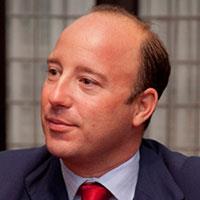
Juan Manuel Cendoya
Vice chairman of the board of directors
Banco Santander
In December of 2016, Juan Manuel Cendoya—longtime head of corporate communications for Banco Santander—was named vice chairman of the board of directors for Santander Spain, an unusual promotion for a public relations executive.
“Our clients know us to be a trustworthy, strong and solid brand, and this a reputation we aim to keep,” according to Cendoya, who led corporate communications and marketing for Santander, one of the few financial services companies that can look back at the global crisis of recent years with any satisfaction, having diversified into emerging economies such as Brazil and via acquisition into established markets such as the US and the UK.
The bank operated under more than 20 separate names in 2004, but the emphasis since then on building the Santander brand has paid off. Cendoya has played a major role in that, leading the group’s internal and external communications, corporate marketing, corporate social responsibility, institutional relations, economic research and public policy and serving as a member of the bank’s global executive committee.
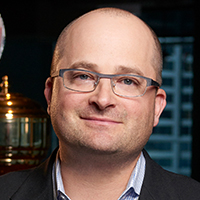
Pete Marino
President of Tenth and Blake/Chief Public Affairs and Communications Officer
MillerCoors
Having conquered the agency business — building one of the most creative midsize firms in the US before selling it to an ad agency — Marino has spent the past few years making the client side of the business look easy. Now he's added business oversight to his hugely accomplished career: as of September 1 last year, he took on operational leadership for MillerCoors' craft and import division, Tenth and Blake.
Marino succeeded the retiring Scott Whitley as president of Tenth and Blake, and is charged with growing the company’s regional craft portfolio – which includes Hop Valley, Revolver, Saint Archer and Terrapin – as well as its prestige import beers, Peroni, Pilsner Urquell and Grolsch. He also oversees the company’s craft beer hospitality, which includes the Blue Moon RiNo Brewery in Denver, the Leinie Lodge in Chippewa Falls, Wisc., and the numerous tasting rooms from regional craft brewers.
He continues to oversee communications, a position he has held since 2014, and is responsible for promoting MillerCoors business strategy and commercial interests with a wide variety of internal and external audiences, including employees, media, distributors, multicultural organizations, community groups, and local, state and federal governments.
Before joining MillerCoors in 2012, Marino led Dig Communications, which he sold to Minneapolis-based ad agency Olson in 2011, becoming president of public relations before moving in-house.

Stephen Forshaw
Managing Director of Corporate Affairs & Managing Director, Australia & New Zealand
Temasek
A political communicator in his native Australia, Stephen Forshaw moved into senior public relations and public affairs roles at Singapore Airlines and Microsoft before becoming MD of public affairs at Singapore-owned investment firm Temasek in 2011. In 2013, Forshaw added operational oversight for Australia and New Zealand to his remit, making him one of the few communications leaders to take on business leadership duties.
A high-profile advocate of the importance of communications to an organisation meeting its goals, Forshaw’s work has often featured an adept ability with social media, evidence of a mindset that is constantly questioning the development of public relations in today’s evolving media landscape. Forshaw has also spoken at length about the need to question one’s organization, rather than becoming “housetrained.”
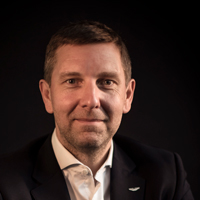
Simon Sproule
Vice President & Chief Marketing Officer; President, Aston Martin Partnerships
Aston Martin Lagonda
Seasoned automotive industry comms man Simon Sproule has been Vice President and Chief Marketing Officer for Aston Martin Lagonda since November 2014. His responsibilities include global marketing and communications, brand communications, corporate social responsibility and internal communications. In 2018, he was also appointed President of Aston Martin Partnerships, a new division set up to manage non-automotive revenue. Sproule reports to Dr Andrew Palmer, President & Chief Executive Officer of Aston Martin Lagonda.
Prior to Aston Martin, Sproule was VP marketing and communications for Tesla Motors. His first position was with Ford Motor Company in the UK, relocating to global operations in Michigan and from 2000, leading communications in North America for Jaguar, Aston Martin and Land Rover. In 2003 Simon joined Nissan North America as VP Communications and a year later moved to Japan to take up the global role.
Can you share a moment in your career that you saw evidence of the direct impact of communications on business performance?At Aston Martin we are now three years into our seven-year turnaround and growth plan; we call it the ‘Second Century Plan’. At the core of the business turnaround is our financial restructuring and the product cycle plan which in turn has been supported by a very proactive communications strategy. We achieved our financial turnaround milestone after three years including many performance indicators a year or more ahead of the plan projections. Communications has been integral to the success of the company’s turnaround at this mid-point in the business plan period.
What are the communications industry's biggest challenges and opportunities?
Biggest challenge is the level of trust from consumers in the news and information they are sourcing and being served: 15 years ago we all celebrated the rise of citizen journalism enabled in particular by social media networks, but now we have to question the source and credibility of the information and news we consume. The opportunity is most compelling for media companies that invest in well researched, sourced and balanced news coverage. All organizations, be they private or public, should be doing everything possible to support great journalism. I hope we can see public trust restored in media brands, something the communications industry should strongly advocate for.
How do you handle the unexpected?
By the very nature of the communications business the unexpected should be our default setting. What differentiates a world class communications organization is how you manage the highs and lows of the news cycle and maintain trust with your stakeholders and the consistency of your narrative. I’m not a pessimist by nature, but at the same time I have dealt with some challenging and often bizarre communication situations over the years. As unpleasant as a crisis can be, the reflexes of a well-organized professional communications team will kick-in and work their way through it.
How do you relax?
With my family…the most powerful way to get perspective on any work situation.
Can you name a book/movie/TV show/podcast/play that teaches a valuable lesson about communications?
A British political sitcom from the 1980’s: “Yes, Prime Minister”. I try to watch a few episodes every year...still relevant and still very funny. On the darker side, I recently re-read “1984” by George Orwell.
If I wasn’t working in my current job, I would be…
A pilot. I always want the window seat on any flight I am on.
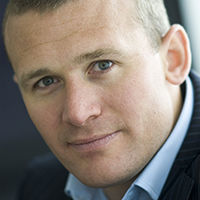
Simon Pearce
Special Advisor to the Chairman
Executive Affairs Authority Of Abu Dhabi
Entrusted with building and protecting Abu Dhabi’s reputation, Pearce has a big budget and an even bigger remit. He is considered one of the UAE’s most influential officials and is particularly close to Khaldoun Al-Mubarak, for whom he helped “smooth the communication of the Manchester City Football Club takeover,” according to the Wall Street Journal.
Since taking on the position in 2006, Pearce has overseen a significant revamp of the Gulf Kingdom’s communications strategy, and also plays an important role in key assets such as the Abu Dhabi Grand Prix and media initiative 2454. Pearce came to the Middle East role after a varied life in the agency world, including a lengthy stint at Burson-Marsteller, encompassing positions on four continents and – in his last job at the firm – as CEO of Australia.
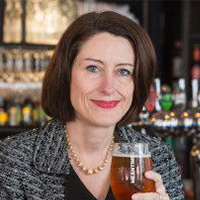
Sue Clark
Managing Director, Europe
SABMiller
In 2012, Clark became that rarity in the PR world: a communications head who moved into the C-suite to become managing director of SABMiller in Europe. A poised performer who once drew the attention of the national media when she decided to remain at work well after going into labour, she had previously headed the brewing giant's global corporate affairs function for nine years, after amassing significant corporate communications experience at Railtrack and Scottish Power.
Clark sits on SABMiller’s executive committee, overseeing all of its public relations, public affairs and corporate responsibility initiatives. Clark is highly regarded for her understanding of reputation and in 2006 she embarked on an ambitious project to define the factors that drive SABMiller’s reputation in its key markets, followed by creating a specific job function focused on the company’s reputation.

 Podcasts
Podcasts Videos
Videos Profiles & Interviews
Profiles & Interviews Crisis Review
Crisis Review Coronavirus
Coronavirus Trend Forecasts
Trend Forecasts Social & Digital
Social & Digital Technology
Technology Consumer
Consumer Employee Engagement
Employee Engagement Sports Marketing
Sports Marketing  Global PR Agency Rankings
Global PR Agency Rankings Agencies of the Year
Agencies of the Year Innovator 25
Innovator 25 Creativity in PR
Creativity in PR Asia-Pacific Communication Index
Asia-Pacific Communication Index SABRE Awards
SABRE Awards PRovokeSummit Global
PRovokeSummit Global PRovoke Media Regional Series
PRovoke Media Regional Series Agencies of the Year
Agencies of the Year Roundtables
Roundtables Agency Playbook
Agency Playbook.jpg) All Jobs
All Jobs







